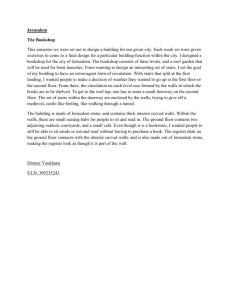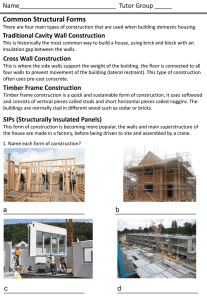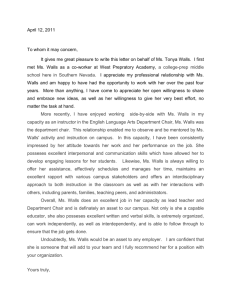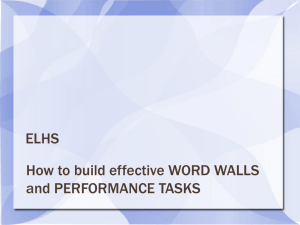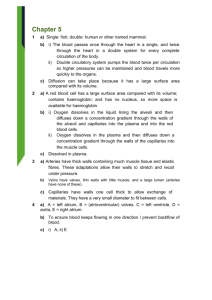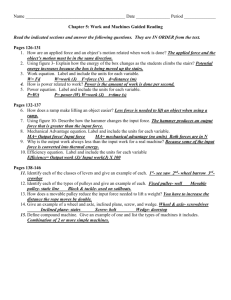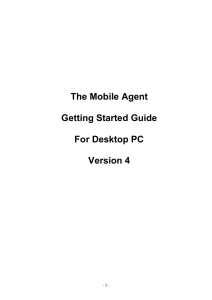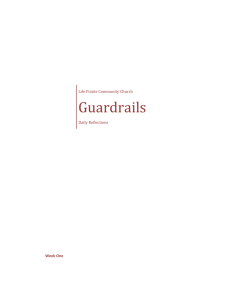DIRECTIVE 2-9 - State University Construction Fund
advertisement
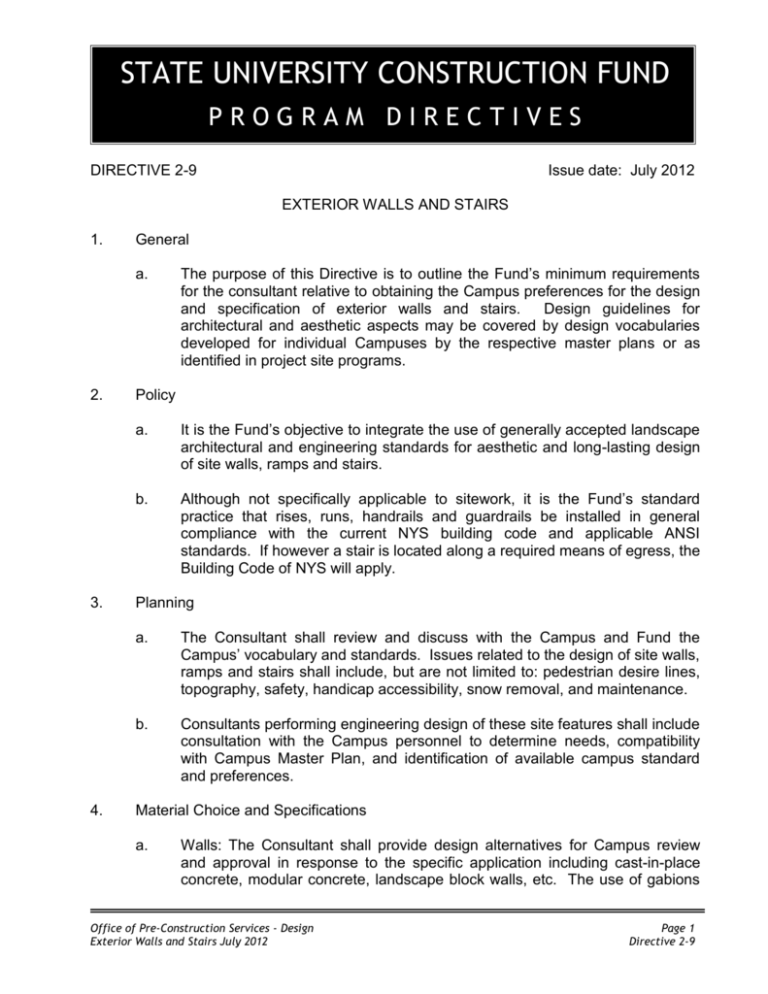
STATE UNIVERSITY CONSTRUCTION FUND PROGRAM DIRECTIVES DIRECTIVE 2-9 Issue date: July 2012 EXTERIOR WALLS AND STAIRS 1. General a. 2. 3. 4. The purpose of this Directive is to outline the Fund’s minimum requirements for the consultant relative to obtaining the Campus preferences for the design and specification of exterior walls and stairs. Design guidelines for architectural and aesthetic aspects may be covered by design vocabularies developed for individual Campuses by the respective master plans or as identified in project site programs. Policy a. It is the Fund’s objective to integrate the use of generally accepted landscape architectural and engineering standards for aesthetic and long-lasting design of site walls, ramps and stairs. b. Although not specifically applicable to sitework, it is the Fund’s standard practice that rises, runs, handrails and guardrails be installed in general compliance with the current NYS building code and applicable ANSI standards. If however a stair is located along a required means of egress, the Building Code of NYS will apply. Planning a. The Consultant shall review and discuss with the Campus and Fund the Campus’ vocabulary and standards. Issues related to the design of site walls, ramps and stairs shall include, but are not limited to: pedestrian desire lines, topography, safety, handicap accessibility, snow removal, and maintenance. b. Consultants performing engineering design of these site features shall include consultation with the Campus personnel to determine needs, compatibility with Campus Master Plan, and identification of available campus standard and preferences. Material Choice and Specifications a. Walls: The Consultant shall provide design alternatives for Campus review and approval in response to the specific application including cast-in-place concrete, modular concrete, landscape block walls, etc. The use of gabions Office of Pre-Construction Services - Design Exterior Walls and Stairs July 2012 Page 1 Directive 2-9 STATE UNIVERSITY CONSTRUCTION FUND PROGRAM DIRECTIVES and timber is discouraged, as they may not be the most aesthetic or lasting installation, respectively. b. Cast-in-Place Concrete Walls: Embedded conduit and fixtures for lighting is discouraged as it further introduces the migration of water. c. Foundations: All foundations shall be placed below the local frost line. d. Brick: Face brick shall tied to supporting wall with stainless steel rigid ties and shall be extended not more than three (3) courses below grade. e. Handrails and Guardrails: For stairs and ramps, specify means, through use of sealant, base plates and weep holes, to address migration and discharge of water penetration. f. Guardrails: Where there is adjacent pedestrian traffic or recreational areas along site walls, review the need to control pedestrian traffic flow with rails, . g. Granite treads in lieu of concrete steps is preferred. h. Nosing: Where concrete stairs are proposed, the use of cast-in-place metal nosings is preferred. i. Weep holes: It is preferred that weep holes be discharged to lateral drains, below frost line. Where discharged along exposed face of wall, the consultant shall ensure that such discharge will not result in an icing condition hazardous to pedestrians. Weep holes shall be screened in order to prevent clogging with backfill materials. j. Backfill: Typical backfill specifications use select structural fill however many contain blends of sand and gravel which are neither free draining or frost free. Provide geotextile drainage board with fabric backing and one foot column of filter stone (NYSDOT Item No: 605.0901) immediately behind wall surface and separate from backfill with geotextile fabric. k. Drainage: Provide 4 inch minimum perforated underdrain surrounded with underdrain filter stone (NYSDOT Item No. 605.0901) wrapped in filter fabric. This drain shall be placed below frost line, discharged to a drainage structure (or daylighted with screened protection), and have cleanouts to grade. ***** Office of Pre-Construction Services - Design Exterior Walls and Stairs July 2012 Page 2 Directive 2-9
